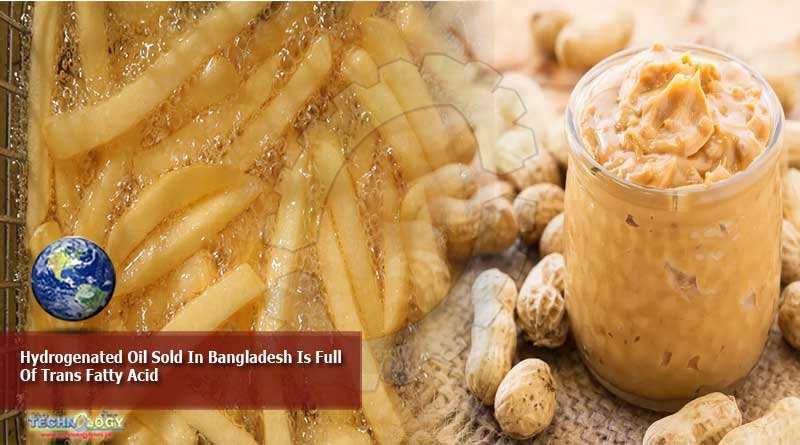Government’s study shows partially hydrogenated oil, sold in Bangladesh under the brand names of Dalda contains excessive trans fatty acid

THE findings of a government study that partially hydrogenated oil, sold in Bangladesh under the brand names of Dalda or Vanaspati, or its variant Banaspati, ghee, contains excessive trans fatty acid, in some cases up to 10 times the permissible limit set by the World Health Organisation, are worrying.
The National Heart Foundation Hospital and Research Institute, which conducted the study and had samples of 24 brands, commonly used by bakers and restaurants, tested in the National Health Institute Food Chemistry Laboratory in Portugal, has found excessive trans fatty acid in 92 per cent of the samples.
While the World Health Organisation sets the limit of trans fatty acid at 2 per cent, or 2 grams in 100 grams of partially hydrogenated oil, some of the samples tested for the study at hand contain 20.9 grams of trans fatty acid in 100 grams of oil and an average of 11 grams of such acid in 100 grams.
The World Health Organisation further recommends that the total trans fatty acid intake should be limited to less than 1 per cent of the total energy intake, which translates to less than 2.2 gram a day in a 2,000-calorie diet.
Such a situation warrants that the government should shore up a few issues centring on partially hydrogenated oil that have been left unattended since such oil came to be imported to the Bangladesh-India-Pakistan subcontinent in the 1930s as a cheap alternative to locally produced ghee or clarified butter.
Partially hydrogenated oil is said to increase low-density lipoprotein or bad cholesterol and, at the same time, lower high-density lipoprotein or good cholesterol. Diet laden with hydrogenated oil, therefore, adds to the risk of heart disease, which is the leading killer of adults. The consumption of excessive trans fatty acid may also cause dementia and impair the cognitive faculty. The study also shows that samples of the same brand contain varying levels of trans fatty acid which suggests that partially hydrogenated oil is casually produced in Bangladesh, apparently in the absence of any regulatory intervention.
Besides, although there is a permissible limit set by the World Health Organisation, which is working to eliminate industrially produced trans fatty acid from the global food supply by 2023, Bangladesh authorities have yet to set any limit, which has prompted a professor of epidemiology at the institute who has been on the research team, to put out a call for the government to set a permissible limit of trans fatty acid in partially hydrogenated oil to save public health.
While the government must, therefore, set permissible limit of trans fatty acid in partially hydrogenated oil and in food supply, the government must also make it mandatory for enterprises to declare the percentage of trans fatty acid in processed food on labels. The government, if needed, should also make intervention in the industrial production of partially hydrogenated oil to save public health.
The article is originally published at New Age.
